
Opening Words
As someone born after 1995, I truly understand everyone's confusion about healthy eating! Scrolling through short videos daily, nutrition advice flies around everywhere - today it's keto for fat loss, tomorrow it's eating more carbs, and the day after that some new theory might pop up. Honestly, I used to be a complete "pseudo-health expert" myself, and I took quite a few wrong turns in pursuit of so-called health.
It was precisely because all these diverse dietary recommendations were giving me a headache that I decided to properly study nutrition. For an entire year, I read no less than 50 professional books, took over a dozen online courses, and specifically consulted nutritionists. Now that I finally have some real insights, I'd like to share my research findings and practical experience with everyone.
Nutrition Truths
To be honest, when I first systematically studied nutrition, I was completely amazed! Many of the so-called "healthy eating methods" we encountered before were actually unreliable. The most basic principles of nutrition are actually quite simple: balance, moderation, and variety. Sounds simple, right? But truly achieving this isn't an easy task.
Take carbohydrates for example - I used to completely avoid staple foods, fearing that eating them would make me gain weight. After serious research, I discovered that carbohydrates aren't just not terrible, they should actually be our main source of daily energy! According to nutrition guidelines, carbohydrates should make up 45-65% of our total daily calories.
I now particularly love oats, not the instant kind, but plain rolled oats. A bowl of oats every morning with some nuts and fruit is absolutely wonderful! Plus, oats are extremely high in dietary fiber - one bowl can provide 6-8 grams of fiber. You know, we're recommended to consume 25-30 grams of dietary fiber daily!
Then there's whole grains, like brown rice and whole wheat bread, which are particularly good sources of carbs. They not only provide sustained energy but also contain large amounts of vitamins and minerals. I've now replaced all the white rice at home with brown rice. Although it took some getting used to at first, after sticking with it for a while, I actually find brown rice's texture more chewy and satisfying.
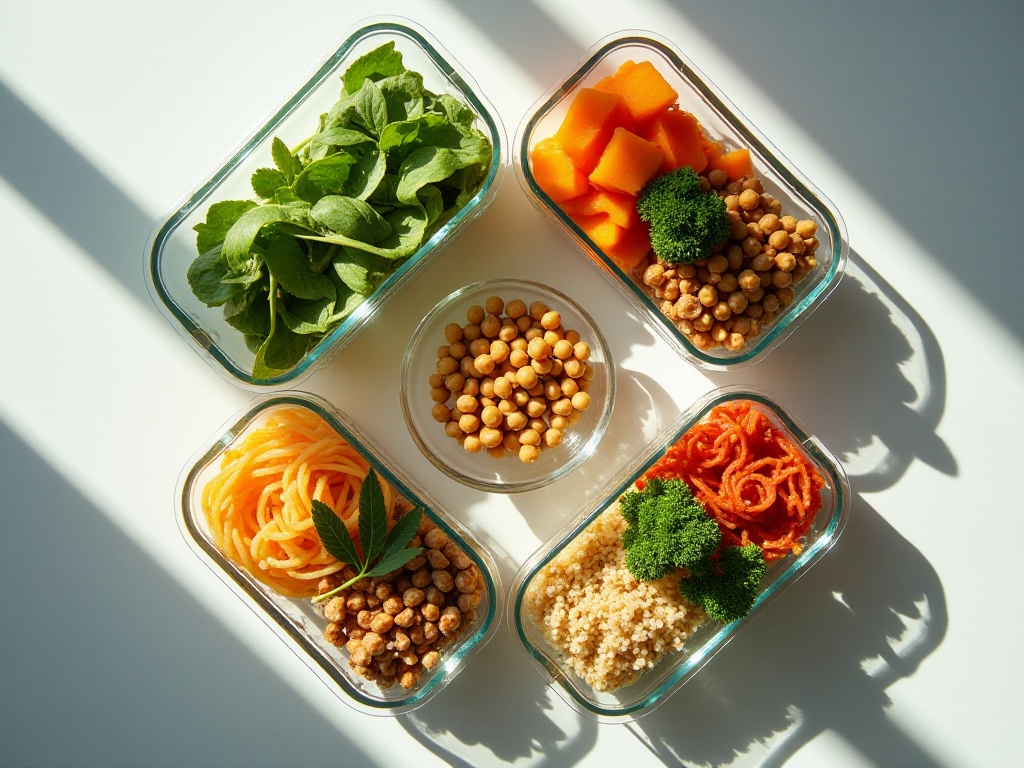
Protein Secrets
Speaking of protein, I used to be a complete "chicken breast fanatic," wanting to eat chicken breast for all three meals if possible. Looking back now, it's really quite ridiculous! Actually, there are many sources of quality protein, and everyone's protein needs are different.
According to the latest nutrition research, 10-35% of our daily caloric intake should come from protein. This range seems broad, but when it comes to individuals, it needs to be adjusted based on factors like age, gender, and activity level. Take me for example - I used to think I wasn't getting enough protein and was constantly stuffing myself with protein powder. Later, when I carefully calculated using a professional nutrition calculator, I was shocked to find out I was actually consuming too much protein!
For example, a 60kg adult only needs 48-60 grams of protein per day. This amount seems small, right? But when you calculate carefully, you'll find it's actually very easy to reach this amount. Two eggs at breakfast already provide 12-14 grams of protein, a palm-sized piece of fish at lunch adds another 20 grams or so, and with some soy products at dinner plus protein from other foods, you easily reach the target.
Now my protein sources are much more diverse: eggs, fish, shrimp, lean meat, soy products, and even some vegetables contain significant protein. For instance, edamame contains 11 grams of protein per 100 grams! Plus, I've found that diverse protein sources not only provide more balanced nutrition but also prevent meal fatigue.
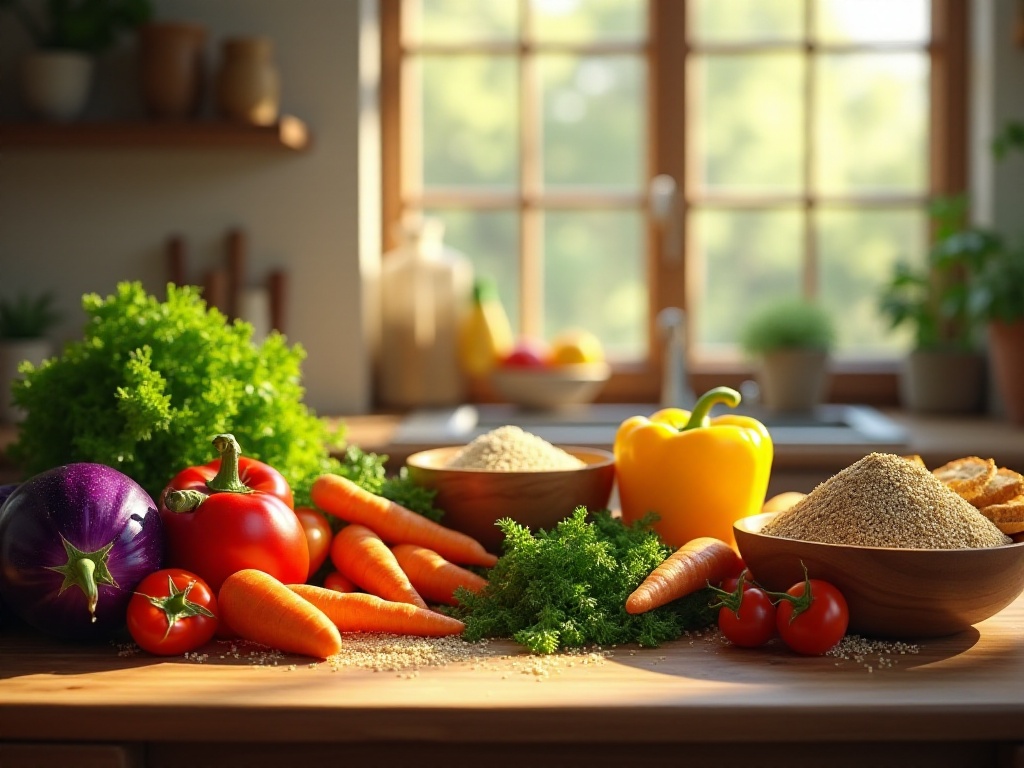
New Understanding of Fat
Regarding fat, I used to be like most people - scared whenever I heard the word. Now I'm a devoted fan of fat! Through learning, I understood that fat isn't just not scary, it's actually an essential nutrient for the body.
Speaking of my favorite healthy fats, salmon definitely tops the list. Although it's a bit expensive, the omega-3 fatty acids it contains are too important for the body. I eat fish twice a week, not necessarily salmon - tuna and mackerel are also great choices. If you really don't like fish, nuts are a good alternative. I eat a small handful of walnuts or almonds every day, about 30 grams, which both supplements healthy fats and serves as a snack.
As for olive oil, it's absolutely essential in my kitchen. However, it's important to note that olive oil is best used for cold dishes, while camellia oil or sunflower oil are better choices for high-temperature cooking. Then there's avocado - although it's high in calories, its monounsaturated fatty acids are particularly good for the body, and it's super satisfying to eat.
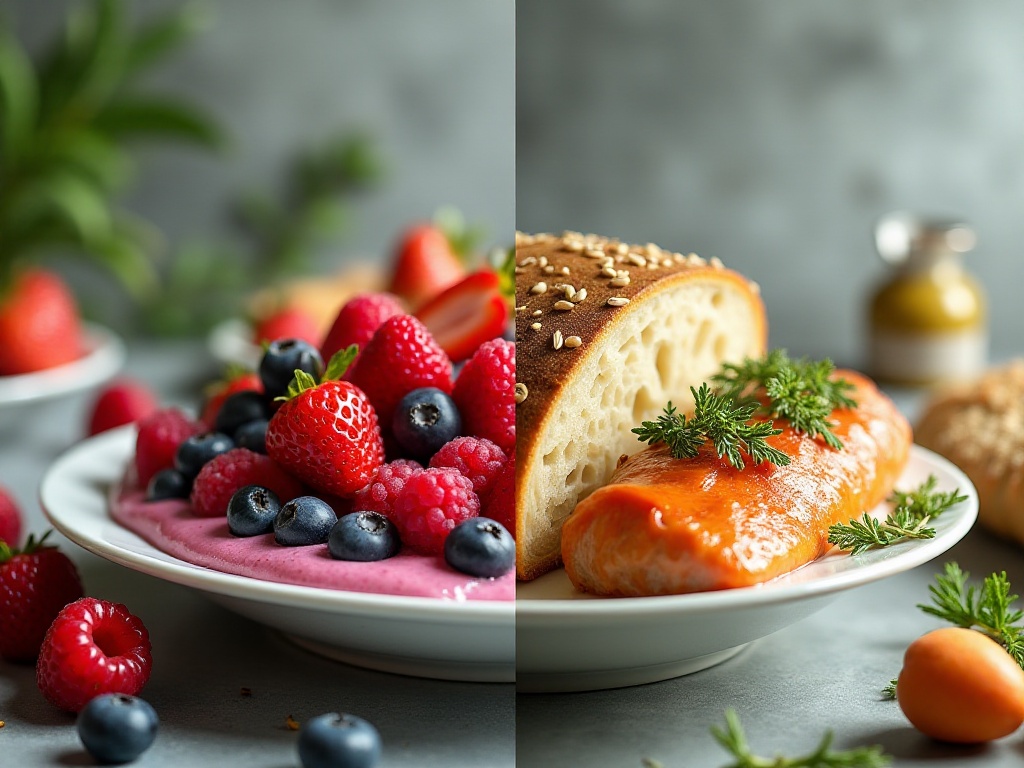
Practical Experience
After a year of practice, I've gathered quite a few useful tips. The most important is doing meal prep. I now spend about an hour every weekend preparing ingredients for the next week. How do I do it? First, I wash and cut various vegetables and pack them in storage containers. I also portion meat into meal-sized amounts and freeze them in storage bags. This way, even if I'm tired after work on weekdays, I can quickly prepare a healthy dinner.
Snack choices are also important. My office drawer is always stocked with healthy snacks like unsalted nuts, dried fruits, and whole wheat crackers. These snacks not only satisfy cravings but also avoid empty calories. However, portion control is important - nuts, although healthy, are high in calories, so eating just a small handful (about 30 grams) at a time is enough.
I also got myself a portable food scale so I can estimate food portions even when eating out. It might seem troublesome at first, but after getting used to it, you'll find it's actually a great way to develop a sense for food portions.
Dietary Advice
Many friends ask me how I stick to healthy eating, and honestly, it's not something that happens overnight. My advice is to progress gradually and never rush. Like myself, I started with small changes.
For example, if you want to eat less sugar, rather than cutting it out completely, start by gradually reducing the amount. That's what I did - I used to put two sugar cubes in my coffee, then gradually reduced it to one, then half, and now I don't need any sugar at all. Our taste buds can actually be trained gradually - the key is patience.
One method I particularly like is the "rainbow plan." Try to eat vegetables and fruits of different colors each day: red tomatoes, orange carrots, yellow corn, green broccoli, purple eggplant... This not only ensures balanced nutrition but also makes food more appetizing. Plus, vegetables and fruits of different colors often contain different nutrients - for example, red tomatoes are rich in lycopene, and purple eggplants contain anthocyanins, which are both great antioxidants.

Family Practice
When it comes to healthy eating, it's even more important if you have children at home. Today's kids are generally picky eaters, but with the right methods, cultivating healthy eating habits isn't difficult.
Take my nephew for example - he used to be a typical picky eater who would shake his head at anything green. Later, I came up with an idea to play the "rainbow adventure" game with him. Every time he tries a new food, he gets to put a sticker on his "food exploration map." Surprisingly, this method worked really well - now he not only isn't picky but often asks to try new foods.
When preparing children's meals, I also pay special attention to food presentation and plating. For example, making fruit into animal shapes, cutting sandwiches into interesting shapes, or arranging ingredients into smiley faces. These little tricks can make children interested in healthy food.
I've also found that parents' eating habits greatly influence their children. If parents don't like eating vegetables, naturally their children won't like them either. So to cultivate healthy eating habits in children, parents must first set an example.
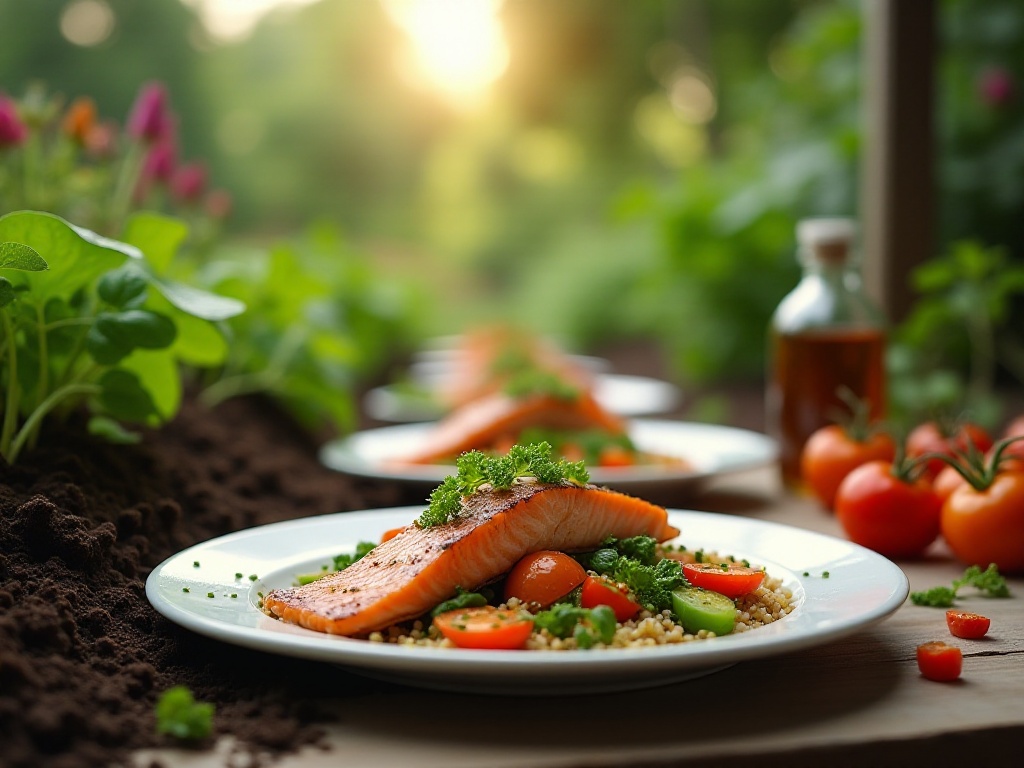
Final Words
After this year of learning and practice, my biggest realization is that healthy eating isn't actually that complicated - the key is establishing correct understanding and cultivating good habits. Don't be misled by various trending diets, and don't pursue so-called "perfect eating." The most important aspect of healthy eating is sustainability, and finding what works for you is what matters most.
Speaking of sustainability, I think it's important to leave some flexibility for yourself. It's okay to occasionally have hotpot or barbecue - what's important is maintaining balance and not giving up completely because of one indulgence. Life should be balanced, and overly strict dietary plans can actually cause psychological resistance.
Finally, I want to say that everyone's physical condition and lifestyle are different, so don't blindly follow others' eating patterns. Finding a healthy eating style that suits you is what's most important. I hope sharing my experience can provide some inspiration for everyone.
There's still much more to learn about nutrition, and if you're interested, we can discuss sports nutrition next time. After all, nutrition and exercise are the two pillars of a healthy lifestyle - neither can be missing. Feel free to share your healthy eating insights in the comments section, and let's improve together!
Next
Smart People's Nutrition Management Tips for Effortless Health and Fitness
A comprehensive guide to healthy eating and nutrition, covering balanced diet composition, healthy eating habits, and practical tips. Detailed information on choosing carbohydrates, proteins, healthy fats, and strategies for diverse fruit and vegetable intake
Done Being a Nutrition Novice? This Comprehensive Nutrition Guide Will Help You Eat Scientifically Starting Today
A comprehensive guide exploring core principles of balanced nutrition and healthy eating, including nutritional optimization advice, scientific dietary methods, and practical meal management tips to help readers establish healthy eating habits
A Nutritionist Tells You: This is How to Eat Healthy Without Too Much Hassle - I've Been Practicing for 3 Years
A comprehensive guide to healthy eating and nutrition improvement, covering dietary principles, habit formation, and practical tips on whole grain selection, fruit and vegetable combinations, and protein intake for a balanced diet
Next

Smart People's Nutrition Management Tips for Effortless Health and Fitness
A comprehensive guide to healthy eating and nutrition, covering balanced diet composition, healthy eating habits, and practical tips. Detailed information on choosing carbohydrates, proteins, healthy fats, and strategies for diverse fruit and vegetable intake

Done Being a Nutrition Novice? This Comprehensive Nutrition Guide Will Help You Eat Scientifically Starting Today
A comprehensive guide exploring core principles of balanced nutrition and healthy eating, including nutritional optimization advice, scientific dietary methods, and practical meal management tips to help readers establish healthy eating habits
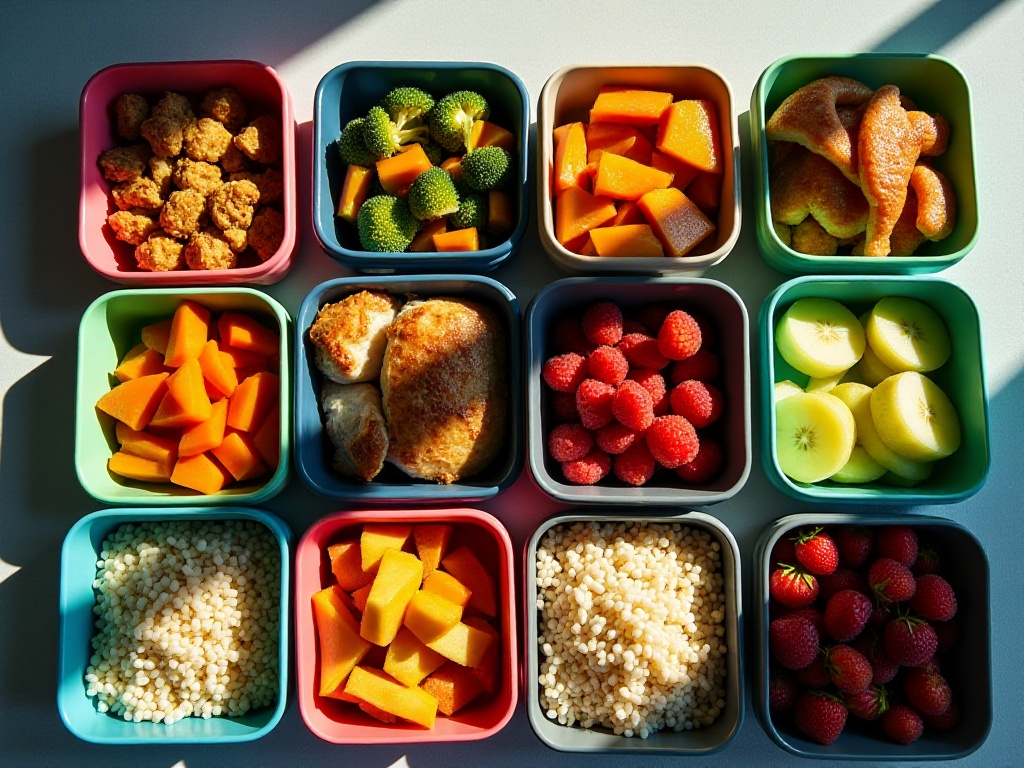
A Nutritionist Tells You: This is How to Eat Healthy Without Too Much Hassle - I've Been Practicing for 3 Years
A comprehensive guide to healthy eating and nutrition improvement, covering dietary principles, habit formation, and practical tips on whole grain selection, fruit and vegetable combinations, and protein intake for a balanced diet
